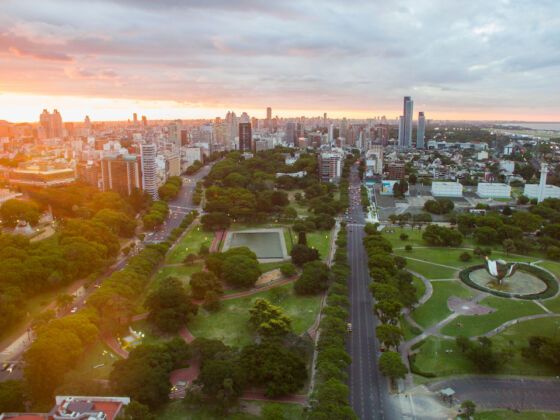RIDING HOME FROM Palermo on the creaking subte during rush hour madness. People elbowing me in the back. The heat of so many bodies. Everyone keeping his or her head down. Looks ranging from disgust to all-out despair on the faces. Nobody saying a word.

“Viste lo que es?” my friend Gustavo asks. You see what this is?
I nod and and think about it for a second and then say, “People get used to anything after a while.” The verb acostumbrar: to become accustomed to.
The train rocks through the curves and we all lean into one another, then recoil, pretending we never felt or smelt each others’ bodies.
“This is us,” Gusavo says. We push our way out through a dozen people–“permiso. . . con permiso. . .perdón,” nearly falling into the station where a guy wearing a scarf is playing a somber and perfect melody on the cello. Gustavo flips a coin into his open instrument case. We climb the filthy stairs to the cold and miraculous air outside.
“Those poor people,” Gustavo says. “They have to do this every day.”
“That many people, traveling every day. . . you’d think there’d be enough revenue to improve the transit system.” As soon as this is of my mouth–even though it was in flawless Spanish–I realize how much of a Gringo-sounding statement I’ve just made.
“Yeah, but it all ends up in the impresarios’ pockets,” Gustavo says. “It’s a país de mierda.” A shit country.
“Cuidado!” I step over a huge pile of dogshit. Then I say: “So these people get on a train de mierda, go to jobs de mierda, and then on their way home, actually step in mierda?”
“Exactemente,” Gustavo says, laughing. “Es todo mierda.”
Gustavo and I have had this same conversation–how Buenos Aires is una mierda–off and on for the last five years. He was born here and lives here but every few months just can’t take it anymore and ends up cooking or managing some restaurant in Mar del Plata or Miami or Costa Rica.
Anyone who is used to clean streets and orderly public transportation will see immediately how Buenos Aires is a city de mierda. But at the same time there’s something lovable and unbreakable about this place.
At the bottom of it all are the street dogs–some with unspeakable wounds and scars and deformities–trotting the concrete, tougher than any army. There’s the guy playing cello. Adding just the right soundtrack to the madness of the subway.
And then there are the capos, those doing whatever it is under whatever circumstances–whether it’s playing soccer or delivering babies–as well as it can be done.
Capos are rare, but you meet them here from time to time, like today in the Cafe Ocho Rincones, on the corner of Forest and Alvarez Thomas. Lau and I walked in and sat down, and there he was, immediately nodding at us that he’d noted our entry and would be right over.
A waiter from the old-school with pomade-slicked hair and an immaculate bow tie. And even though he’d probably arrived here this morning off a train or bus de mierda, you’d never know it from his eyes, which said ‘as long as you’re here, whatever it is you need, I’m going to take care of you.’ He approached our table.
“Madame,” he said, bowing slightly to Lau, then “Caballero,” turning to me, “Welcome.”